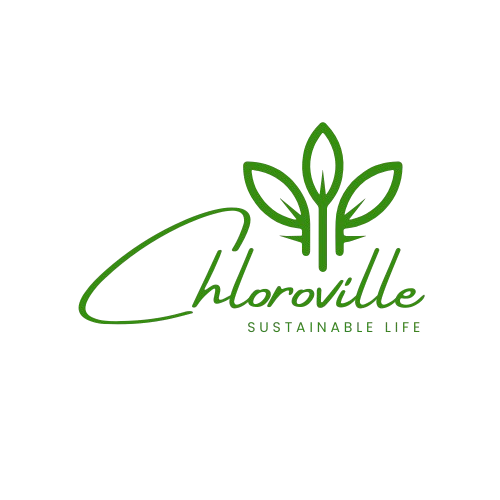A strong immune system is essential for protecting your body against illness and infection. While there’s no magic pill for immunity, certain nutrients and lifestyle habits can help your immune system function at its best. By supporting immunity naturally, you can improve your body’s defenses and enjoy better overall health.
This article explores essential nutrients and lifestyle practices that can boost your immune system naturally. With a few adjustments to your diet and daily routine, you can build resilience against common colds, flu, and other infections.
Key Nutrients for Immune Support
Vitamin C
Vitamin C is one of the most well-known immune-supporting nutrients, as it stimulates the production of white blood cells that help fight off infections. As a powerful antioxidant, it also helps protect cells from damage caused by free radicals.
Sources of vitamin C: Citrus fruits (oranges, lemons, grapefruits), strawberries, kiwi, bell peppers, and broccoli are all rich in vitamin C. Including these foods in your diet regularly can support immune health.
For information on the importance of Vitamin C and its dietary sources, visit Vitamin C: Benefits and Sources from the NHS. Learn how this essential nutrient supports your health and where to find it in your diet.

Vitamin D
Vitamin D plays a crucial role in immune function, as it enhances pathogen-fighting effects of monocytes and macrophages—white blood cells that help protect the body against infections. Low levels of vitamin D have been linked to increased susceptibility to infection.
Sources of vitamin D: Sun exposure is the best source of vitamin D, but it can also be found in foods like salmon, egg yolks, and fortified dairy products. During the winter months or in low-sunlight areas, a vitamin D supplement may be beneficial.
Zinc
Zinc is an essential mineral that helps immune cells function and promotes wound healing. Zinc deficiency has been linked to increased susceptibility to infections, especially in children and older adults.
Sources of zinc: Shellfish (like oysters), poultry, beans, nuts, and seeds are all good sources of zinc. Including these in your diet can help support immune resilience.
For a guide to the best dietary sources of zinc, check out Best Foods High in Zinc from Healthline. This article highlights nutrient-packed options to support your immune system and overall health.
Vitamin A
Vitamin A is essential for maintaining healthy skin and mucous membranes, which act as barriers against infection. It also supports the functioning of T-cells, a type of white blood cell that plays a central role in immune response.
Sources of vitamin A: Carrots, sweet potatoes, spinach, and other orange or dark green vegetables are rich in beta-carotene, which the body converts into vitamin A.

Probiotics
Probiotics are beneficial bacteria that support gut health, which is closely linked to immune function. A healthy gut microbiome helps regulate immune responses, reducing the likelihood of infections and inflammation.
Sources of probiotics: Yogurt, kefir, sauerkraut, kimchi, and other fermented foods. Regular consumption of these foods helps maintain a healthy gut and supports immune health.
Antioxidants and Polyphenols
Antioxidants and polyphenols protect cells from oxidative stress, which can weaken the immune system. They also have anti-inflammatory effects, which help maintain immune balance.
Sources of antioxidants: Berries, green tea, dark chocolate, and colorful vegetables are high in antioxidants and polyphenols that support immunity.

Healthy Lifestyle Habits for Immune Support
Regular Exercise
Exercise has numerous benefits for immunity, including enhancing circulation and reducing inflammation. Moderate exercise boosts the circulation of immune cells, helping them move freely throughout the body and fight off infections more effectively. However, it’s important to avoid over-exercising, as excessive physical strain can suppress immune function.
Aim for at least 30 minutes of moderate exercise, such as brisk walking, cycling, or yoga, several times a week to support immune health.
Quality Sleep
Sleep is vital for immune health, as it allows the body to repair and recover. During sleep, the body produces cytokines, proteins that help fight infection and inflammation. Chronic sleep deprivation, on the other hand, can weaken immune response, making it harder for the body to defend itself against illness.
Aim for 7–9 hours of quality sleep each night, and try to maintain a consistent sleep schedule to optimize immune function.
Managing Stress
Chronic stress can suppress the immune system, increasing susceptibility to illness. When you’re stressed, your body releases cortisol, a hormone that can inhibit immune responses. Managing stress effectively through practices like mindfulness, deep breathing, or yoga can help maintain a healthy immune system.
Incorporate stress-relief practices into your daily routine to reduce cortisol levels and support overall health.

Staying Hydrated
Hydration is essential for every aspect of health, including immune function. Water helps carry oxygen to cells and flush out toxins from the body. Staying hydrated also supports the mucous membranes in the respiratory tract, creating a barrier against pathogens.
Aim to drink at least eight glasses of water a day, and increase your intake if you’re active or in a hot climate.
Dietary Tips for a Strong Immune System
Eating a Rainbow of Fruits and Vegetables
Colorful fruits and vegetables are packed with vitamins, minerals, and antioxidants that support immunity. A varied diet with plenty of colors ensures you’re getting a wide range of nutrients for immune health.
Try to include a rainbow of produce, such as berries, leafy greens, bell peppers, and citrus fruits, in your meals each day.
Incorporating Healthy Fats
Healthy fats, particularly omega-3 fatty acids, have anti-inflammatory effects that support the immune system. They can be found in foods like fatty fish, flaxseeds, chia seeds, and walnuts. Avoid trans fats and excessive saturated fats, as they can contribute to inflammation.
Adding a few sources of healthy fats to your diet can support immune health and reduce inflammation.
Limiting Sugar and Processed Foods
High sugar intake can suppress immune function by increasing inflammation and hindering white blood cell activity. Processed foods often contain high amounts of refined sugars and unhealthy fats, which can weaken immune response.
Opt for whole foods whenever possible and limit added sugars to support a healthy immune system.

Supplements to Consider for Immune Health
Vitamin C and Zinc
If you’re unable to get enough vitamin C or zinc from your diet, a supplement may be helpful, especially during cold and flu season. These supplements can help fill gaps in your diet and support immune health.
Vitamin D
Vitamin D supplements are especially beneficial for those who live in low-sunlight areas or are unable to get regular sun exposure. Vitamin D plays a crucial role in immune response, so consider a supplement if you’re at risk of deficiency.
Probiotics
Probiotic supplements can be useful for supporting gut health, which is linked to immunity. Look for high-quality probiotics with diverse strains to promote a healthy gut microbiome.
Boosting your immune system naturally involves a combination of nutrient-dense foods, healthy lifestyle habits, and smart supplementation. By incorporating immune-supporting vitamins and minerals, managing stress, staying active, and prioritizing sleep, you can build a resilient immune system and improve overall well-being.
Start with small, sustainable changes to your diet and daily routine, and enjoy the benefits of a stronger immune system. These natural approaches not only support immunity but also enhance energy, mental clarity, and quality of life.
For a simple and sustainable way to add fresh greens to your meals, explore our guide on Growing Microgreens atHome. Learn step-by-step tips to cultivate nutrient-rich microgreens in any space.




















